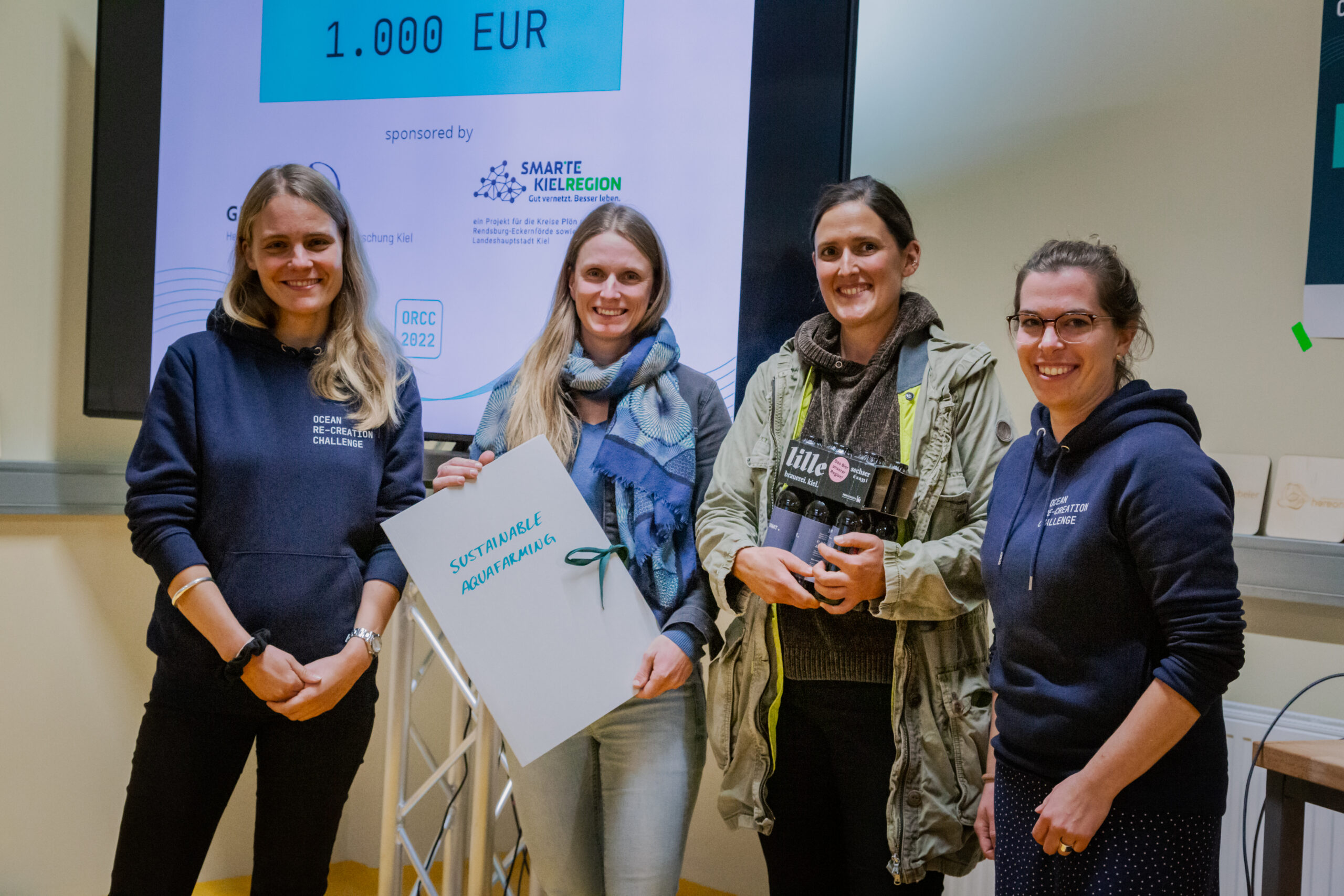CHALLENGE – SUSTAINABLE AQUAFARMING
Melanie, Barbara and Nadja worked on the Challenge – Multi Use Caged Aquafarming during #ORCC22. Using the example of the “Kieler Meeresfarm”, the aim was to find out how commercial fish farming can also succeed in terms of sustainability.
This is because there is still a lot of catching up to do in the area of sustainability in the aquafarming sector. One of the reasons for this is the use of antibiotics administered to the fish. Then there is the feed: around 20 kg of wild fish are needed for one farmed fish. Another problem is again the elimination of food and drug residues and fish feces. They lead to water pollution and environmental damage.
So what kind of rethinking is needed and what would an alternative and sustainable business model for fish farming look like that supports biodiversity regionally and at the same time offers model character supraregionally? The three scientists took up exactly this challenge and, among other things, developed a strategy for a fish enclosure that is no longer “just” a fish enclosure.


They focused on that during the hackathon:
- Finding a perfect fish for sustainable aquafarming at the “Kieler Meeresfarm”.
- A concept for a healthy fish habitat in fish farming
to
develop.
As a first step, the team met with the “Kieler Meeresfarm” . They asked analytical questions to dive into the topic and structure information. This approach quickly resulted in the solution of the first challenge. The team identified the native tadpole, based on its life requirements, as the perfect fish for sustainable aquafarming on the marine farm.
Tackling the second challenge involved brainstorming, conversations with stakeholders, and many reboots. But all the work was worth it. The result is a sustainable idea with multiple ecological potentials in the form of a floating island with local and protected seawater asparagus plants. The island not only provides a healthy home for the fish but at the same time delivers a new vegan fish alternative with the asparagus plant.
As a model character, the floating islands have great potential not only for aquafarming, but also in coastal tourist areas, for example in the field of edutainment. In addition, the concept is convincing due to low investment costs for the construction of a prototype. The jury was also enthusiastic about the innovative idea and awarded the team with the 2nd place of the #ORCC22!
Copyright: Nicole Riederer Lightnic Photography
